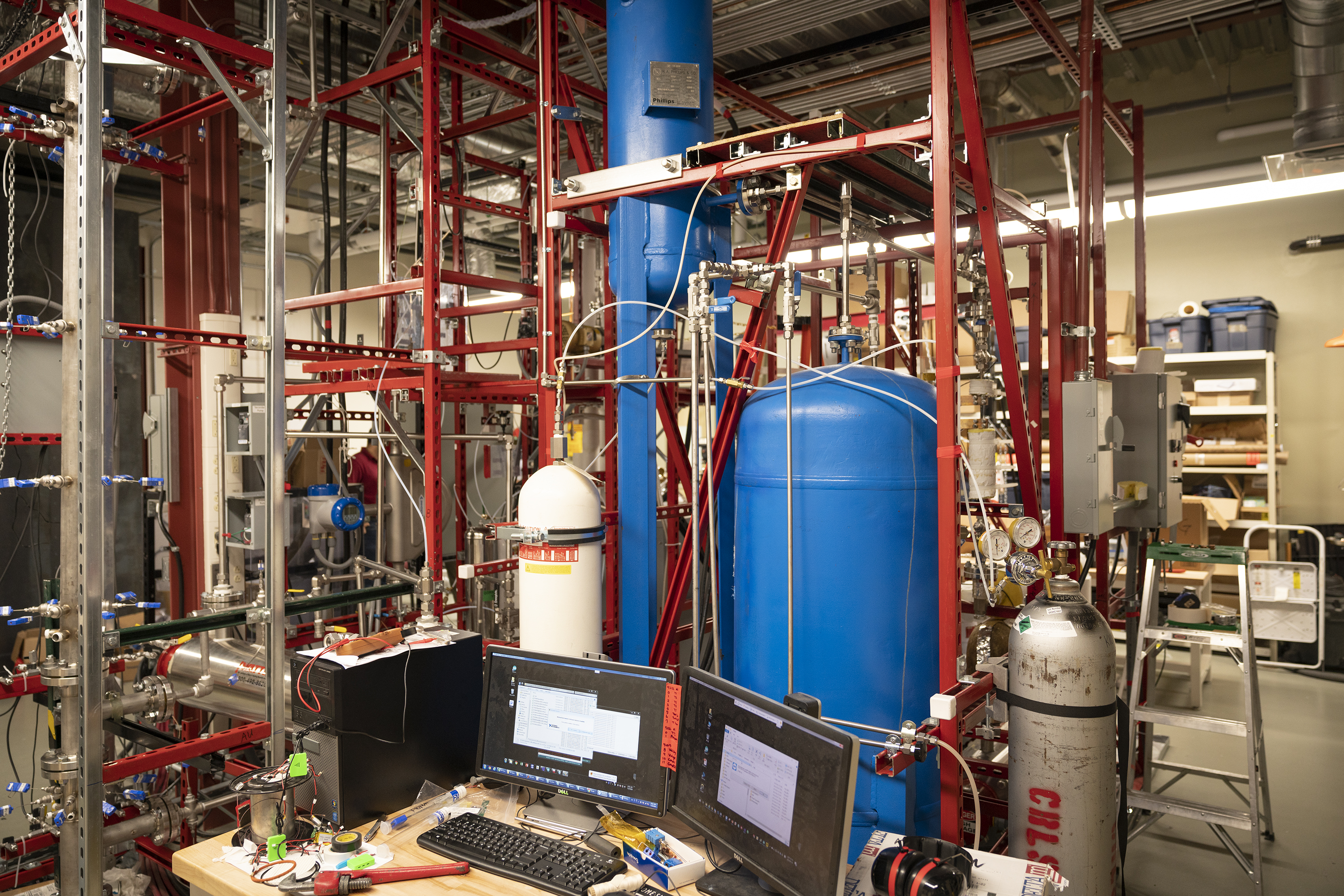Recent News
UNM joins Brown University in national institute focused on intuitive, trustworthy AI assistants
August 6, 2025
UNM Engineering team wins ASEE best paper for work on first-year engineering course
July 17, 2025
New director will enhance interdisciplinary engineering learning opportunities
July 2, 2025
Final SIRI cohort visits UNM campus
June 30, 2025
News Archives
UNM nuclear engineers part of national consortium to strengthen nuclear security
February 7, 2019 - By Kim Delker
Researchers from The University of New Mexico Department of Nuclear Engineering are part of a 14-university team that will seek to improve capabilities to monitor the global nuclear fuel cycle, with the overall charge of boosting nuclear safety.
UNM is part of the Consortium for Monitoring, Technology and Verification, which will focus on nuclear and particle physics, signals and source terms, and the physics of monitoring nuclear materials. The science generated will advance the national capability to detect and characterize foreign nuclear weapons development programs and detect activities not in compliance with current treaty obligations.

UNM’s share of the five-year award from the Department of Energy’s National Nuclear Safety Administration (NNSA) is $1.5 million. The UNM team is led by Anil K. Prinja, Distinguished Professor and chair of the Department of Nuclear Engineering. Also on the UNM team are Adam Hecht and Christopher Perfetti, both faculty members in nuclear engineering.
Universities partnering with UNM on the team include the University of Michigan (lead), Princeton University, Columbia University, the University of California, Berkeley, as well as several national laboratories, including Sandia National Laboratories and Los Alamos National Laboratory.
A second consortium, called the Consortium for Enabling Technologies and Innovation, led by Georgia Institute of Technology and includes 12 universities working to develop and refine technologies supporting the nonproliferation mission to detect and characterize the production of nuclear materials.
Together, the two projects total $50 million, with the overarching goal of bolstering nuclear security.
“These grants will foster development of concepts and technologies that keep the United States at the forefront of nuclear monitoring and verification capabilities and allow us to nurture tomorrow’s nonproliferation experts,” Brent K. Park, NNSA deputy administrator for Defense Nuclear Nonproliferation, said in a statement.
